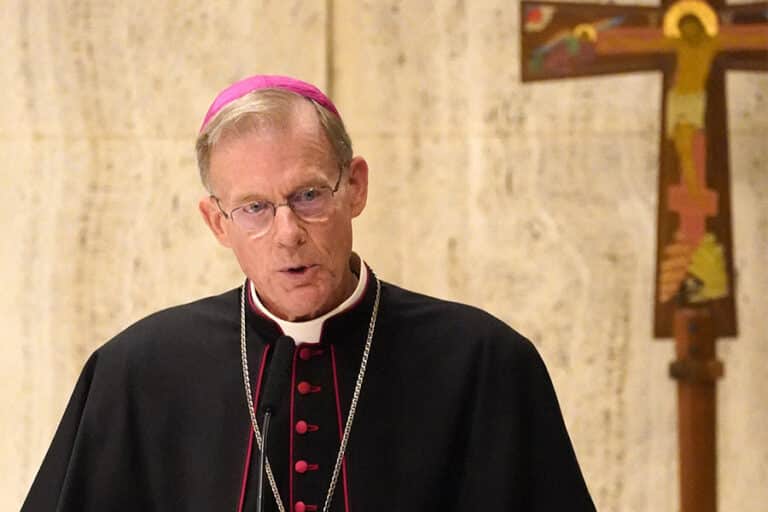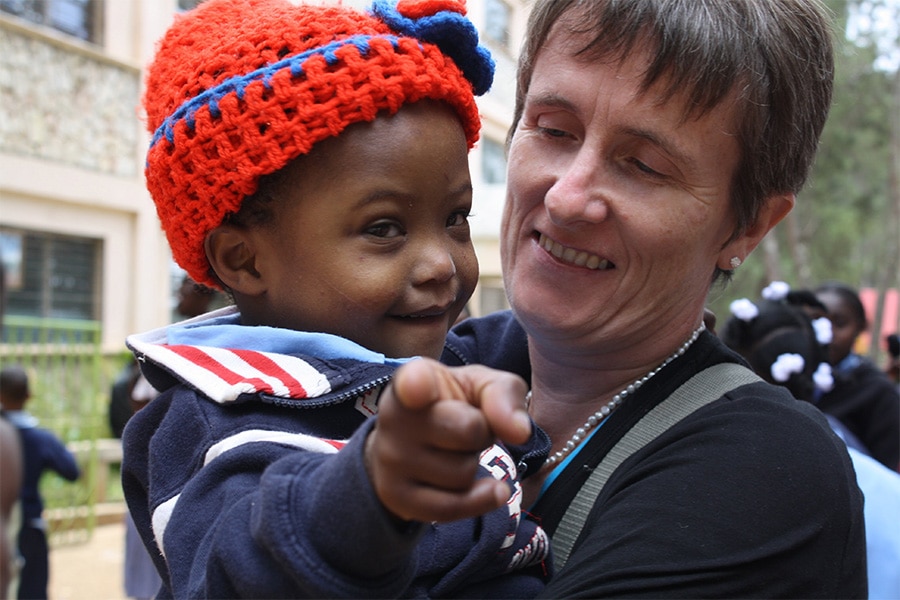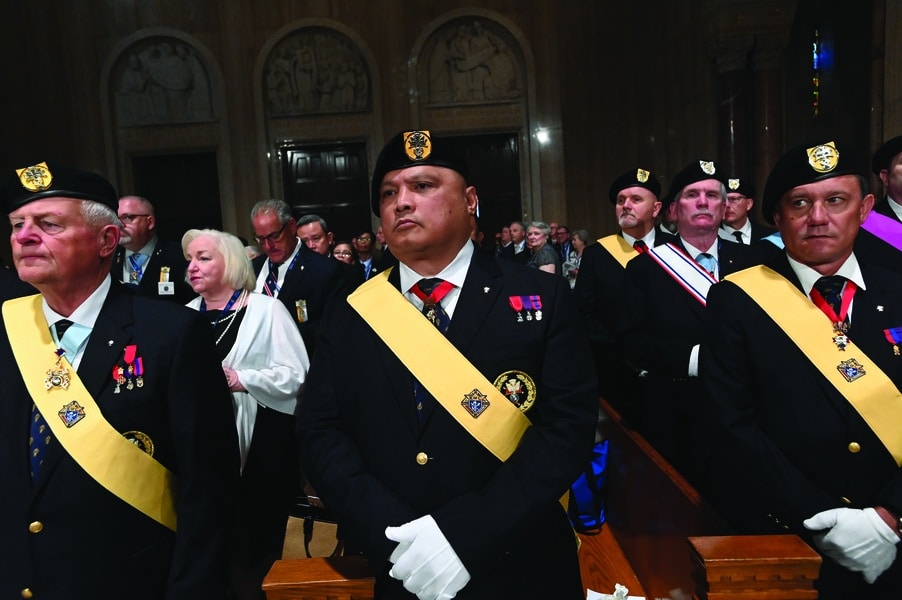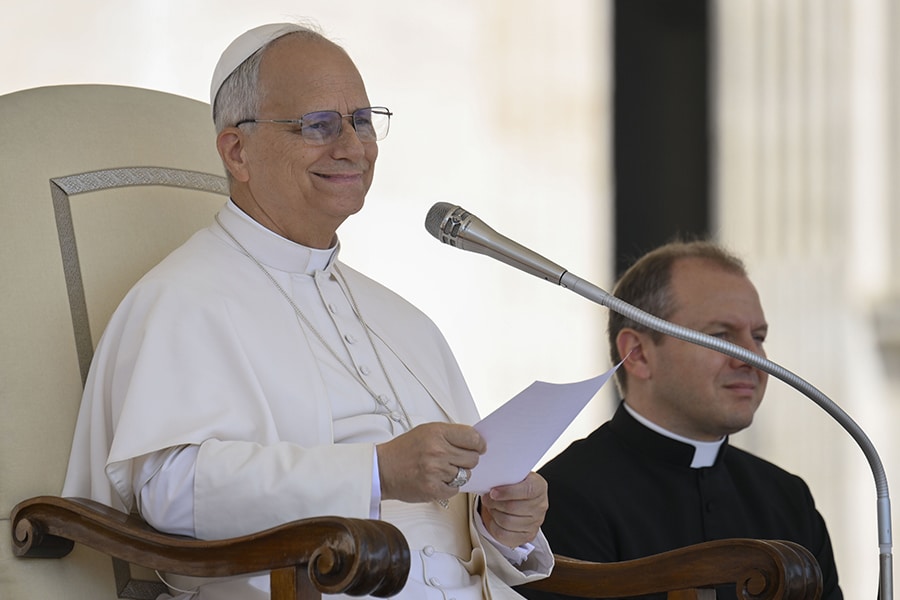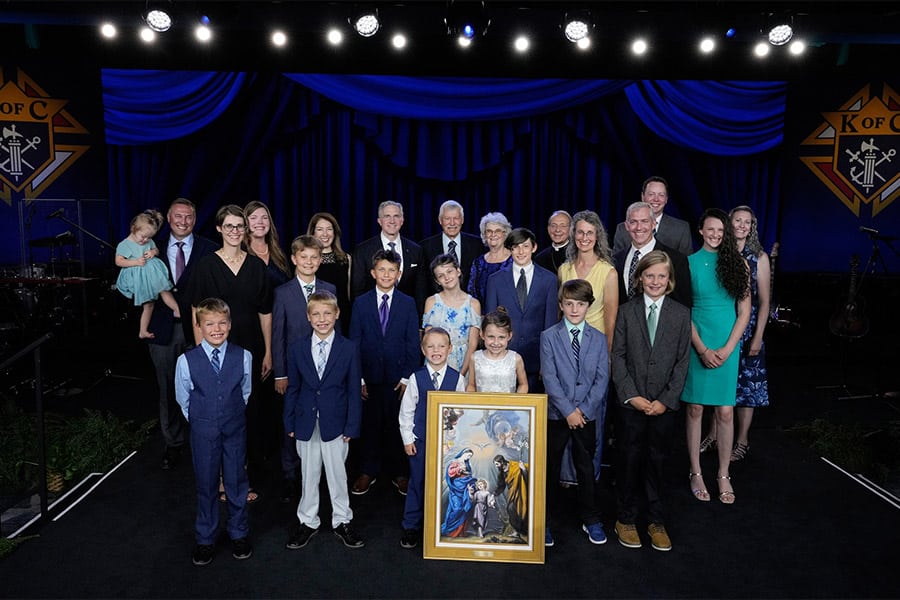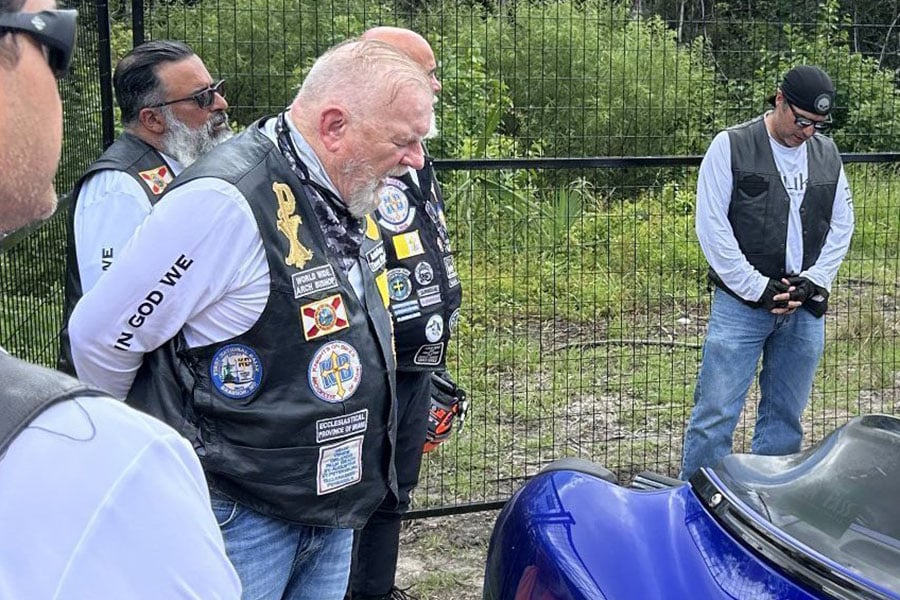Ahead of his third “Pilgrimage of Peace” to Japan to mark the 80th anniversary of the Hiroshima and Nagasaki atomic bombings, Archbishop John C. Wester spoke with OSV News about the current state of nuclear risk, and efforts to disarm the world of nuclear weapons.
This interview has been lightly edited for clarity and style.

OSV News: How would you describe the climate worldwide now in terms of the nuclear risk? The Bulletin of Atomic Scientists currently has the Doomsday Clock clock set at 89 seconds to midnight.
Archbishop Wester: Sadly, I think that the atomic scientists are right. The geopolitical landscape today is really very difficult, very stressful, very nerve-racking. We just keep seeing more and more instances of countries and areas of concern — for example, India and Pakistan; we saw Thailand and Cambodia (neither of which are nuclear powers, but have experienced long-running conflict) just recently. Of course, we’ve been seeing (concerns in) Ukraine for years, and what’s going on in Gaza and Lebanon. There are just so many areas that are of concern.
Clearly, we’ve been living under the threat of nuclear annihilation for quite some time, for decades. But that threat seems to be more ominous these days.
OSV News: How do we climb down from this nuclear precipice? It almost seems so daunting a task that many people may think there’s nothing we can do except hope that nuclear war doesn’t break out.
Archbishop Wester: That’s right. It’s not a topic people want to talk about — understandably so. I don’t like talking about it.
But I think we have to talk about it. We have a responsibility to ourselves and to our children, to our planet. And we have a responsibility to our God. It’s a moral question. God has given us the gift of life and the gift of creation, as the late Pope Francis says so beautifully in (his encyclical) “Laudato Si’.” We have to take care of these gifts.
And I think we have to be hopeful. This is the Jubilee Year of Hope. Let’s face it — yes, we’re in dire times, but we’ve been in dire times before. Remember back in the ’60s and ’70s and ’80s, we were in the Cold War. President (John F.) Kennedy then began that (limited nuclear test ban) initiative with Khrushchev (following the 1962 Cuban Missile Crisis). … Leaders can come together.
Now we’re in a nuclear arms race that’s arguably far more dangerous than the first one, particularly with the artificial intelligence, with hypersonic delivery systems, and, as I said, with the landscape so stressful these days.
So, yes, it’s (nuclear disarmament) a challenge and it’s not going to happen overnight. It’s going to be a long haul, but we’ve done it before, and we can do it again.
OSV News: What do you say to those who advocate for nuclear deterrence in the interest of national security?
Archbishop Wester: A lot of times people will say to me, “We need nuclear weapons for deterrence.” And it strikes me that deterrence has become our worst enemy — because it’s deterrence that guarantees nuclear weapons forever.

All the nuclear weapons states, the nine of them — and who knows who in the future — will feel we have to have these for deterrence.
But we know that by having them, we are in danger, because there could be a miscommunication, a nuclear war could start à la “Fail-Safe” (a 1962 novel by political scientists Eugene Burdick and Harvey Wheeler which envisions an accidental nuclear confrontation between the U.S. and Russia).
Or it could be a terrorist, or any number of accidents. We’ve had nuclear accidents happen in the past.
I remember that Defense Secretary (Robert) McNamara under Kennedy said that the only reason we avoided nuclear war in the Cuban Missile Crisis in 1962 was luck. And I don’t think the world should hang onto luck as our strategy.
It’s complicated. I know people think that we’re naive to be pushing for nuclear disarmament, but I would ask, “Well, who really is naive: those who think we can live with nuclear weapons, or those who are insisting that we get rid of them?”
OSV News: Are you worried that AI could be a significant risk accelerant here?
Archbishop Wester: AI doesn’t have a conscience. And so AI is gonna do what a computer would do, and conceivably could start a nuclear war because that’s what seems like the best thing to do — without any concern for the fact that hundreds of millions and actually billions of lives will be lost because of that nuclear Armageddon.
I certainly don’t want to put my future in the hands of AI, and I don’t think anybody would. AI doesn’t have a conscience. There’s no moral authority there.
So I think that Pope Leo XIV is quite astute to be wary of AI, and to be warning us to be careful of it and to be cautious about it.
OSV News: You have really walked closely, and over the long-term, with people who have known firsthand the dangers and literally the fallout from nuclear war — such as the Trinity Test Downwinders, and the Hiroshima and Nagasaki survivors you’ve met. Talk about how that accompaniment has informed your disarmament advocacy, especially as these individuals, over time, recede from recent memory.
Archbishop Wester: A lot of times people say to me, “Well, nuclear weapons are just sitting in their silos. They haven’t hurt anybody.”
Obviously they hurt a lot of people in Hiroshima and Nagasaki 80 years ago, and they continue to hurt people in a variety of ways. The Tula Rosa Basin Downwinders (who suffered radiation and other aftereffects from the U.S. 1945 Trinity atomic bomb test) are prime examples of people who have been affected by the development of nuclear weapons in New Mexico.
Tina Cordova (co-founder of the Tula Rose Basin Downwinders Consortium), who’s been championing that cause, has five generations of her family who have cancer linked to the radiation.
Nuclear weapons have and continue to hurt us by people who’ve been affected by radiation poisoning — and by the fact that we’re in a multi-trillion dollar program looking ahead to modernize our nuclear weapons in this country. That money could be used for cancer research, for the education of children. It could be used for all manner of things that would improve humanity in our country and throughout the world.
And so nuclear weapons pose threats about what could happen, and they have already hurt us in a variety of ways.
So it’s really clear that we’re playing with fire. And if we keep playing with fire long enough, we’re going to get burnt.
OSV News: What can the person in the pew — the average Catholic who is going about his or her job, raising a family, attending to the faith — do to bring the world closer to disarmament?
Archbishop Wester: I think it’s a good question. I’ve often asked that myself, and (have asked) our parishioners here in the Archdiocese of Santa Fe.
I think we have to have confidence that God works through each of us, that we’re all called by Christ through our baptism to proclaim the Gospel. And so we must never underestimate the power of that.
If all Catholics really started to promote nuclear disarmament, it would have an effect.
Obviously, from a practical point of view, we need to tell our elected officials of our opinion. They look to polls, they look to votes. So we have to make it known to them. If enough people made it known that, “Look, we want you to do something about this,” it would get done.
But even aside from the politics of it, if there’s a moral will and determination, that will win the day. And so I think Catholics need to get out there.
I encourage our parishioners to have peace and justice committees in their parishes to bring the subject up, to talk about ways (to address it). In one of our parishes, the folks that belong to that committee are very eager to be part of this nuclear disarmament movement. And their voices are heard.
Little by little, the word gets out. I think it has an effect.
So I think the key is to trust that the Lord will work in all that we do, and that our work will be effective.
Read More World News
Copyright © 2025 OSV News

